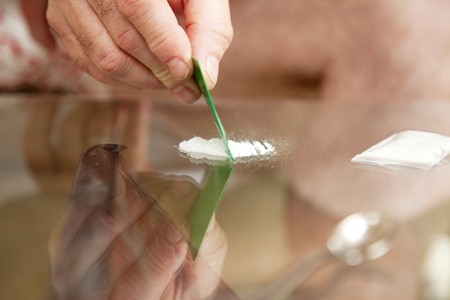Disrupting Memories of Cocaine Use Might Prevent Relapse
Cocaine users who want to abstain from the drug may find that encountering people or places who remind them of past cocaine use can increase their cravings for the drug and lead to relapse. Researchers are studying animals to see if disrupting the link between an environmental cue and the memory of cocaine’s effects could reduce cravings for the drug.
In a 2016 article in the journal Neuropsychopharmacology, researcher Melissa S. Monsey and colleagues reported that in rats, the amnesia-causing natural compound garcinol can weaken the cues that lead to a cocaine-seeking. Garcinol is derived from the rind of kokum (or Garcinia indica) fruit, which is native to the west coast of India.
Monsey and colleagues delivered the garcinol during a period when the rats’ brains were reconsolidating memories that linked an environmental cue with the pleasurable effects of cocaine.
For 12 days, the rats in the study could press a lever and receive an intravenous infusion of cocaine that was paired with a light and a sound. Then the lever stopped working for 8 days. Next, the researchers observed how the rats behaved when the light and sound returned.
The light and sound were meant to remind the rats of the previous times they received cocaine, prompting their brains to reconsolidate the memory linking the light/sound with the pleasurable effects of cocaine.
Half of the rats were given an injection of garcinol during this memory reconsolidation period. While all of the rats continued to seek out cocaine, in the garcinol-treated rats, the light/sound was no longer linked to cocaine. Their cocaine-seeking behavior from then on was unrelated to the light/sound, and the link between the light/sound and cocaine could not be reinstated in these rats.
This research on rats may help clarify how cravings are produced in the brain, and how they might be prevented or treated.
Editor’s Note: In 2012, Yan-Xue Xue and colleagues reported in the journal Science that in humans, psychological techniques can be used to help a patient unlearn the association between an environmental cue and the effects of a drug, using the same theory of the memory reconsolidation period. When patients in recovery from heroin addiction were prompted to revisit memories of heroin use 10 minutes before extinction training (in which they looked at heroin or heroin paraphernalia without receiving the drug), they ended up with fewer cravings for heroin 1, 30, and 180 days later compared to patients who did extinction training without revisiting memories of past heroin use (and thus without opening the memory reconsolidation window, which researchers believe opens 5 minutes to an hour after someone engages in active recall).


